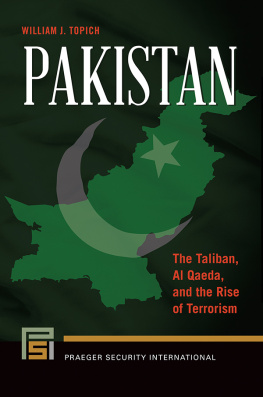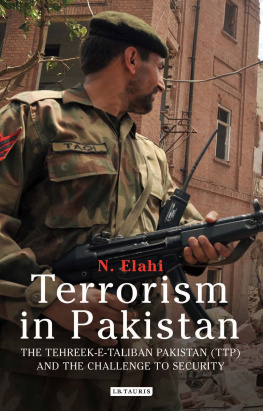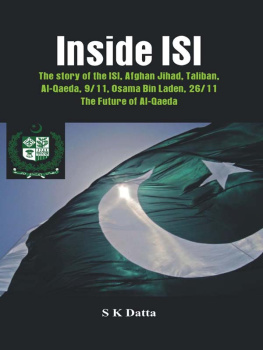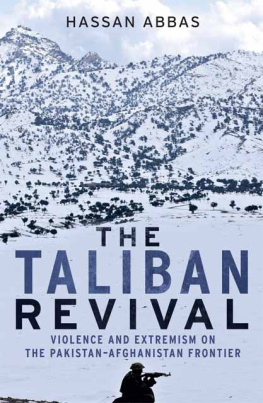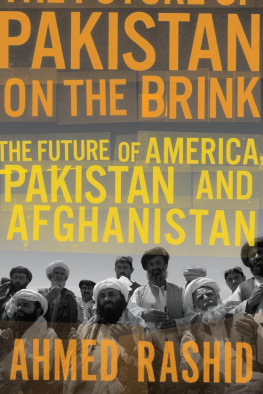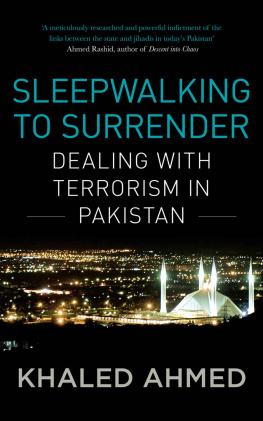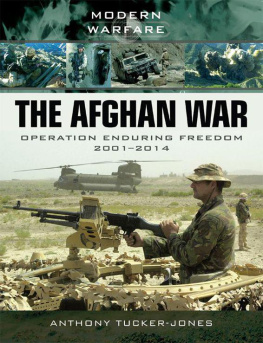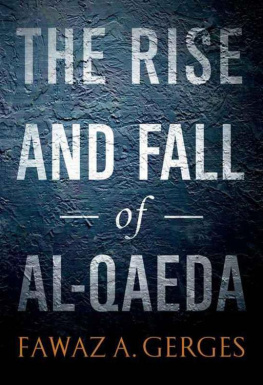Topich - Pakistan : the Taliban, al Qaeda, and the rise of terrorism
Here you can read online Topich - Pakistan : the Taliban, al Qaeda, and the rise of terrorism full text of the book (entire story) in english for free. Download pdf and epub, get meaning, cover and reviews about this ebook. City: Array, year: 2018, publisher: Praeger, genre: Politics. Description of the work, (preface) as well as reviews are available. Best literature library LitArk.com created for fans of good reading and offers a wide selection of genres:
Romance novel
Science fiction
Adventure
Detective
Science
History
Home and family
Prose
Art
Politics
Computer
Non-fiction
Religion
Business
Children
Humor
Choose a favorite category and find really read worthwhile books. Enjoy immersion in the world of imagination, feel the emotions of the characters or learn something new for yourself, make an fascinating discovery.
Pakistan : the Taliban, al Qaeda, and the rise of terrorism: summary, description and annotation
We offer to read an annotation, description, summary or preface (depends on what the author of the book "Pakistan : the Taliban, al Qaeda, and the rise of terrorism" wrote himself). If you haven't found the necessary information about the book — write in the comments, we will try to find it.
Topich: author's other books
Who wrote Pakistan : the Taliban, al Qaeda, and the rise of terrorism? Find out the surname, the name of the author of the book and a list of all author's works by series.
Pakistan : the Taliban, al Qaeda, and the rise of terrorism — read online for free the complete book (whole text) full work
Below is the text of the book, divided by pages. System saving the place of the last page read, allows you to conveniently read the book "Pakistan : the Taliban, al Qaeda, and the rise of terrorism" online for free, without having to search again every time where you left off. Put a bookmark, and you can go to the page where you finished reading at any time.
Font size:
Interval:
Bookmark:


Copyright 2018 by William J. Topich
All rights reserved. No part of this publication may be reproduced, stored in a retrieval system, or transmitted, in any form or by any means, electronic, mechanical, photocopying, recording, or otherwise, except for the inclusion of brief quotations in a review, without prior permission in writing from the publisher.
Library of Congress Cataloging-in-Publication Data
Names: Topich, William J., author.
Title: Pakistan : the Taliban, al Qaeda, and the rise of terrorism / William J. Topich.
Description: Santa Barbara : Praeger Security International, 2018. | Includes bibliographical references and index.
Identifiers: LCCN 2018013297 (print) | LCCN 2018017027 (ebook) | ISBN 9781440837616 (ebook) | ISBN 9781440837609 (alkaline paper)
Subjects: LCSH: TerrorismPakistan. | RadicalismPakistan. | Islam and politicsPakistan. | Taliban. | Qaeda in the Indian Subcontinent. | PakistanPolitics and government. | PakistanHistory.
Classification: LCC HV6433.P18 (ebook) | LCC HV6433.P18 T67 2018 (print) | DDC 954.9105/3dc23
LC record available at https://lccn.loc.gov/2018013297
ISBN: 978-1-4408-3760-9 (print)
978-1-4408-3761-6 (ebook)
222120191812345
This book is also available as an eBook.
Praeger
An Imprint of ABC-CLIO, LLC
ABC-CLIO, LLC
130 Cremona Drive, P.O. Box 1911
Santa Barbara, California 931161911
www.abc-clio.com
This book is printed on acid-free paper 
Manufactured in the United States of America
I want to thank Pulaski Academy for their continued help and support and especially the first rate Social Science instructors I have had the privilege of working with: Angela King, Beth McCandless, Mary Muldrow, Jody Musgrove, Adam Penman, Rachel Primm, and Anthony Simmons. The Pulaski Academy administrative team: Alecia Castleberry, Greg Griffeth, Diane Lafferty, Leesa Renshaw, Matt Walsh, and Cheryl Watts, all provided needed encouragement during the turbulent times of working on this manuscript.
The inspiration for this book came from my travels to the region in 2010, which would not have been possible without the assistance of the Lone family: Binish, Fasal, Sarish, and, most importantly, Mohammad Ashraf Lone. Their friendship and hospitality during our stay in the country was beyond generous. Traveling with my former students and comrades, Kensey Berry, Jessica Berry Conway, Ian McMath, and Kristin Topich as well as Binish, Fasal, and Sarish Lone made this an unforgettable experience.
The editorial assistance from Nicole Topich was unbelievably helpful, and the book could not have been completed without her insightful editing skills. The project also benefitted from the timely formatting assistance from my former student Akhil Maddukuri. My daughter Kristin Topich provided breathtaking photography of the region for the book during our trip in 2010. The assistance from the staff at the Youngstown Public Library was very valuable during the two long summers of writing the manuscript.
The encouragement from the team at Praeger Press, including Steve Catalano and Padraic (Pat) Carlin, was extremely helpful as political changes in Pakistan led to numerous alterations in the manuscript along the way.
Finally, I thank my wife, LaDonna, and my daughters, Nicole and Kristin who were very supportive and encouraged me to pursue this timely and important project.
The never-ending problem of terrorism in Pakistan continues to disrupt the political situation in South Asia and complicates attempts at peace and reconciliation within the region. As a volatile nuclear state, Pakistan is of concern for policy makers in the United States and globally. From the inception of Pakistan, troubling trends emerged pertaining to national identity and the role of religion in the newly formed country. Pakistani paranoia centered on the obsession with the perceived threat from India and the realization that Pakistan could not match their power. Further complicating the Pakistan situation was the artificial nature of the country. Especially troubling was the inhospitable and ungovernable tribal areas bordering Afghanistan. This region became a center stage regarding terrorism, and all parties involved in anti-terrorism efforts entered the area with caution and forewarning of the difficulty in attempting to pacify the area.
The regional upheaval that eventually led to Pakistan becoming the epicenter of global terrorism would not have taken place without the damaging role of General Zia-ul-Haq. In his decade-long tenure, General Zia promoted a radical Islamization program and planted the seeds of extremism that grew into a full-fledged terrorism problem. Zias zealotry coupled with the proxy war against the Soviet Union in neighboring Afghanistan created the perfect storm for regional chaos and the strengthening of extremism. The subsequent period of state failure led to the birth of the Taliban movement in Afghanistan. This radical Wahhabis-influenced movement was in essence a creation of the Pakistan security apparatus, most notably the ISI. As the Taliban went from an insurgency movement to the governing body of Afghanistan, Pakistan had the ideal situation to strengthen their position regionally.
This changed forever with the events of September 11, 2001. Pakistan became a lynchpin of the U.S. efforts in the global war on terror. Pakistani president Musharraf became a vital link in the American efforts to dismantle the Al Qaeda terrorist network and to remove the Taliban regime in Afghanistan. As U.S. efforts proved initially successful, the militants fleeing Afghanistan ultimately sought sanctuary in neighboring Pakistan.
By 2002, Al Qaeda was dislodged from Afghanistan and firmly planted in Pakistan. Some terrorists sought the anonymity of the densely populated urban centers but most opted for the inhospitable tribal regions and sought sanctuary in areas such as Waziristan. The Taliban were ousted but had set up a governing structure in the Pakistan city of Quetta. Efforts to prosecute the war on terror in Pakistan were a troubling prospect for numerous reasons. The Pakistan military and intelligence service had nurtured and helped to create the same militants that the United States was now asking them to hunt down and kill. The vast majority of Pakistani officials did not feel this would be in the national security interest of the country and never seriously entertained this idea. Furthermore, an aggressive campaign against terrorist elements, many with ethnic or tribal ties to Pashtun insurgents in the country, could ultimately destabilize the fragile regime of Musharraf. The survival of elements from the former Taliban regime was considered a high priority to the ISI and factions of the Pakistani military. A pro-Pakistani government in Afghanistan was essential to combat the existential threat from India.
For the next decade, Pakistan would play a dangerous double game regarding relations with the United States and combatting terrorism. At times, the regime would orchestrate operations to flush out militants in the tribal areas. Other times, the government seemed quick to cut deals with insurgents to mitigate potential losses. It was common knowledge that Pakistan was a torn country regarding anti-terrorism efforts.
Font size:
Interval:
Bookmark:
Similar books «Pakistan : the Taliban, al Qaeda, and the rise of terrorism»
Look at similar books to Pakistan : the Taliban, al Qaeda, and the rise of terrorism. We have selected literature similar in name and meaning in the hope of providing readers with more options to find new, interesting, not yet read works.
Discussion, reviews of the book Pakistan : the Taliban, al Qaeda, and the rise of terrorism and just readers' own opinions. Leave your comments, write what you think about the work, its meaning or the main characters. Specify what exactly you liked and what you didn't like, and why you think so.

